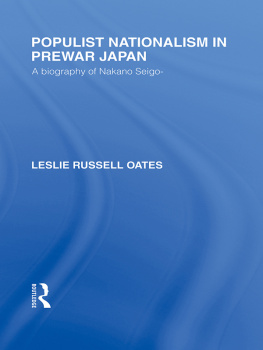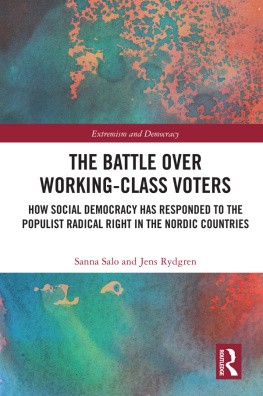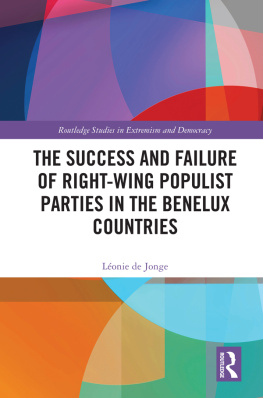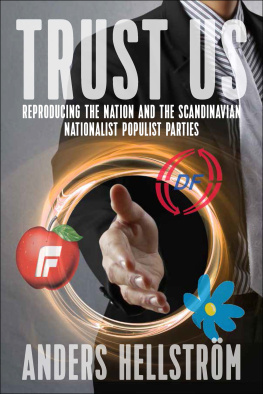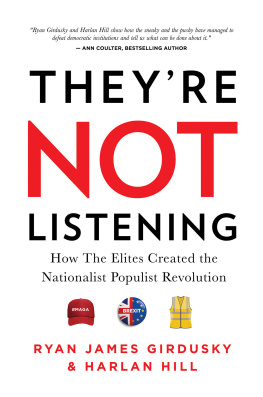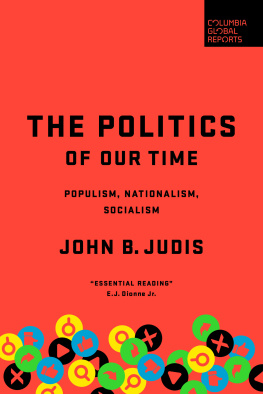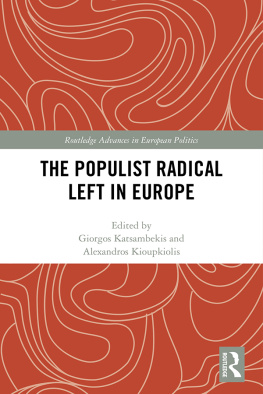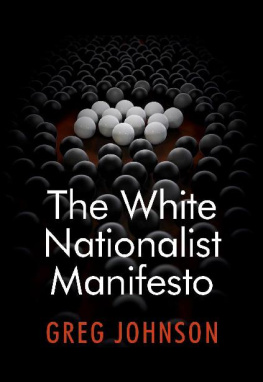
Nationalist Responses to the Crises in Europe
The last few years have witnessed a remarkable resurgence of populist nationalism as indicated by Brexit, the Trump presidency and the rise of radical parties of the far right. Nationalist Responses to the Crises in Europe examines the drivers, methods and local appeal of populist nationalism. Based on multi-sited fieldwork in England, Hungary and Norway, Cathrine Thorleifsson explores the various material conditions, historical events and social contexts that shape distinct forms of xenophobia and intolerance toward migrants and minorities. Combining analysis of the discourses propagated by populist radical right parties like the UK Independence Party, Fidesz, Jobbik and the Norwegian Progress Party with an analysis of the fears and concerns of supporters, Thorleifsson develops wider conclusions about the drivers and character of populist nationalism and the way in which these differ across national contexts. An empirically grounded study of how the demand and supply sides of populist nationalism are reconfigured in response to the globalized crises of economy, culture and displacement, this book will appeal to scholars of anthropology, sociology and politics with interests in nationalism, populism, the radical right and contemporary xenophobia.
Cathrine Thorleifsson is a researcher at the Centre for Research on Extremism at the University of Oslo, Norway. She earned a PhD in Anthropology from the London School of Economics and Political Science in 2012, and from 20142017 she was a postdoctoral fellow at the ERC-funded project Overheating: The Three Crises of Globalization. She is the author of Nationalism and the Politics of Fear in Israel: Race and Identity on the Border with Lebanon (2015).
Research in Migration and Ethnic Relations Series
Series Editor: Maykel Verkuyten, ERCOMER Utrecht University
The Research in Migration and Ethnic Relations series has been at the forefront of research in the field for ten years. The series has built an international reputation for cutting edge theoretical work, for comparative research especially on Europe and for nationally-based studies with broader relevance to international issues. Published in association with the European Research Centre on Migration and Ethnic Relations (ERCOMER), Utrecht University, it draws contributions from the best international scholars in the field, offering an interdisciplinary perspective on some of the key issues of the contemporary world.
Diasporas and Homeland Conflicts
A Comparative Perspective Challenges
Bahar Baser
Intercultural Education in the European Context
Theories, Experiences, Challenges
Marco Catarci, Massimiliano Fiorucci
The Migration of Highly Educated Turkish Citizens to Europe
From Guestworkers to Global Talent
Zeynep Yanasmayan
Nationalist Responses to the Crisis in Europe
Old and New Hatreds
Cathrine Thorleifsson
For more information about this series, please visit: https://www.routledge.com/sociology/series/ASHSER1136
Nationalist Responses to the Crises in Europe
Old and New Hatreds
Cathrine Thorleifsson
First published 2019
by Routledge
2 Park Square, Milton Park, Abingdon, Oxon OX14 4RN
Routledge is an imprint of the Taylor & Francis Group, an informa business
2019 Cathrine Thorleifsson
The right of Cathrine Thorleifsson to be identified as author of this work has been asserted by her in accordance with sections 77 and 78 of the Copyright, Designs and Patents Act 1988.
All rights reserved. No part of this book may be reprinted or reproduced or utilised in any form or by any electronic, mechanical, or other means, now known or hereafter invented, including photocopying and recording, or in any information storage or retrieval system, without permission in writing from the publishers.
Trademark notice: Product or corporate names may be trademarks or registered trademarks, and are used only for identification and explanation without intent to infringe.
52 Vanderbilt Avenue, New York, NY 10017
British Library Cataloguing in Publication Data
A catalogue record for this book is available from the British Library
Library of Congress Cataloging-in-Publication Data
Names: Thorleifsson, Cathrine, author.
Title: Nationalist responses to the crises in Europe : old and new hatreds / Cathrine Thorleifsson.Description: Abingdon, Oxon ; New York, NY : Routledge, 2019. | Series: Research in migration and ethnic relations series | Includes bibliographical references and index.
Identifiers: LCCN 2018025201| ISBN 9781472466471 (hbk) | ISBN 9781315597478 (ebk)
Subjects: LCSH: Nationalism--Europe. | Populism--Europe. | Right-wing extremists--Europe. | Xenophobia--Europe. | Europe--Ethnic relations.
Classification: LCC JC311 .T64 2019 | DDC 320.54094--dc23
LC record available at https://lccn.loc.gov/2018025201
ISBN: 978-1-472-46647-1 (hbk)
ISBN: 978-1-315-59747-8 (ebk)
To Ragna, Rikke and Tobias, for your enduring love and support.
Writing this book has been the result of four years research. When I began the project on the rise of populist nationalism, the background was the economic crisis in Europe. I wanted to explore and compare the material and socio-cultural contexts in places where populist radical right (PRR) parties had obtained their electoral breakthrough. How did the global crisis affect local life worlds and what were the concerns and aspirations of supporters of populist nationalism? While I was conducting fieldwork in England and Hungary in the late summer of 2015, another crisis affected Europe, the so-called refugee crisis. The influx of asylum seekers to Europe reached an unprecedented level with some 885,000 migrants arriving. That year alone an estimated 3,800 refugees and migrants lost their lives in the attempt to cross the Mediterranean to reach the shores of Europe. What was a humanitarian crisis and crisis of cooperation in the European Union, was framed in radical right discourse as a crisis of security and national identity for Europe.
Because social reality is never static, researching the way humans make sense out of their lives in response to contemporary forces and events is like researching a constantly moving target. Acknowledging the uneven speed and scale of accelerated change, this book thus attempts to analyse the rise and appeal of populist nationalism in response to the interrelated crises of economy and displacement. It uses social science perspectives on nationalism, globalization and identity, with original empirical material to examine how the boundaries of the nation are reconfigured by radical right parties, politicians and their supporters.
While an analysis of economic contexts and PRR discourses online has been key from a methodological perpective, this book could not have materialized without the generous time of all the people I have met in the course of my research for it. First, I extend my gratitude to the people I met in England, Hungary and Norway, for sharing their stories, experiences and for allowing me into their professional and private lives. In total I spent six months in the field, spending considerable time with ordinary supporters of anti-immigration PRR parties. While I have had previous experience living with people whose political convictions I do not necessarily share (my previous book was on nationalism in Israel and entailed fieldwork amongst supporters of the radical right parties Likud and Shas), I was still anxious about access and how I would be received. I acknowledge that my own biography, as a 32-year-old white, female postdoctoral researcher from Norway, and middle class, affected my informants pronouncement. However, my outsider status might have gained me an enhanced level of trust and possibly the people I met felt less restrained in their discussions. Access was much less of a challenge than I initially had envisioned. People were largely not suspicious, and were open and eager to share their hopes, fears and concerns with someone who was interested in their lives and had the time to listen.


